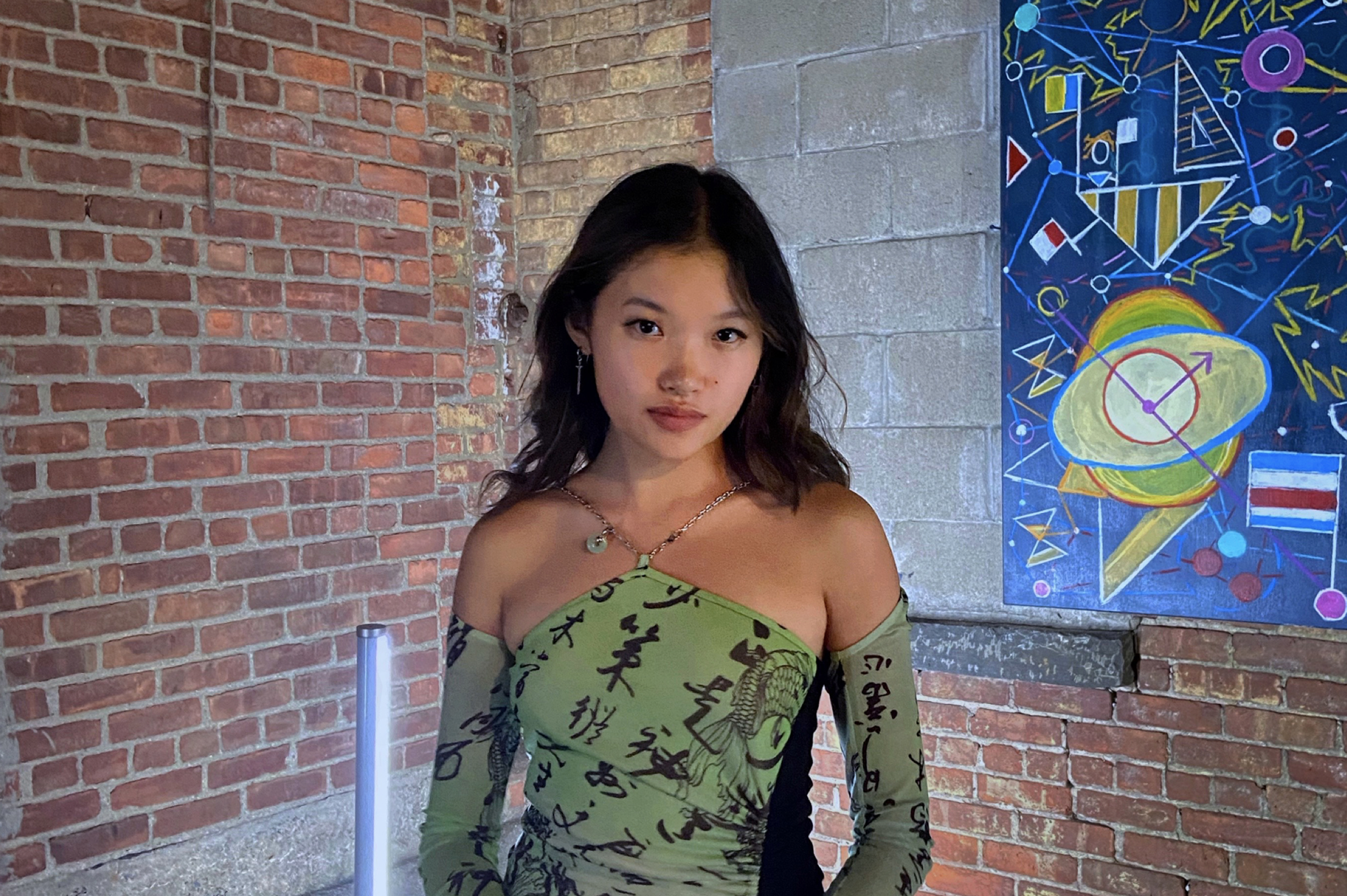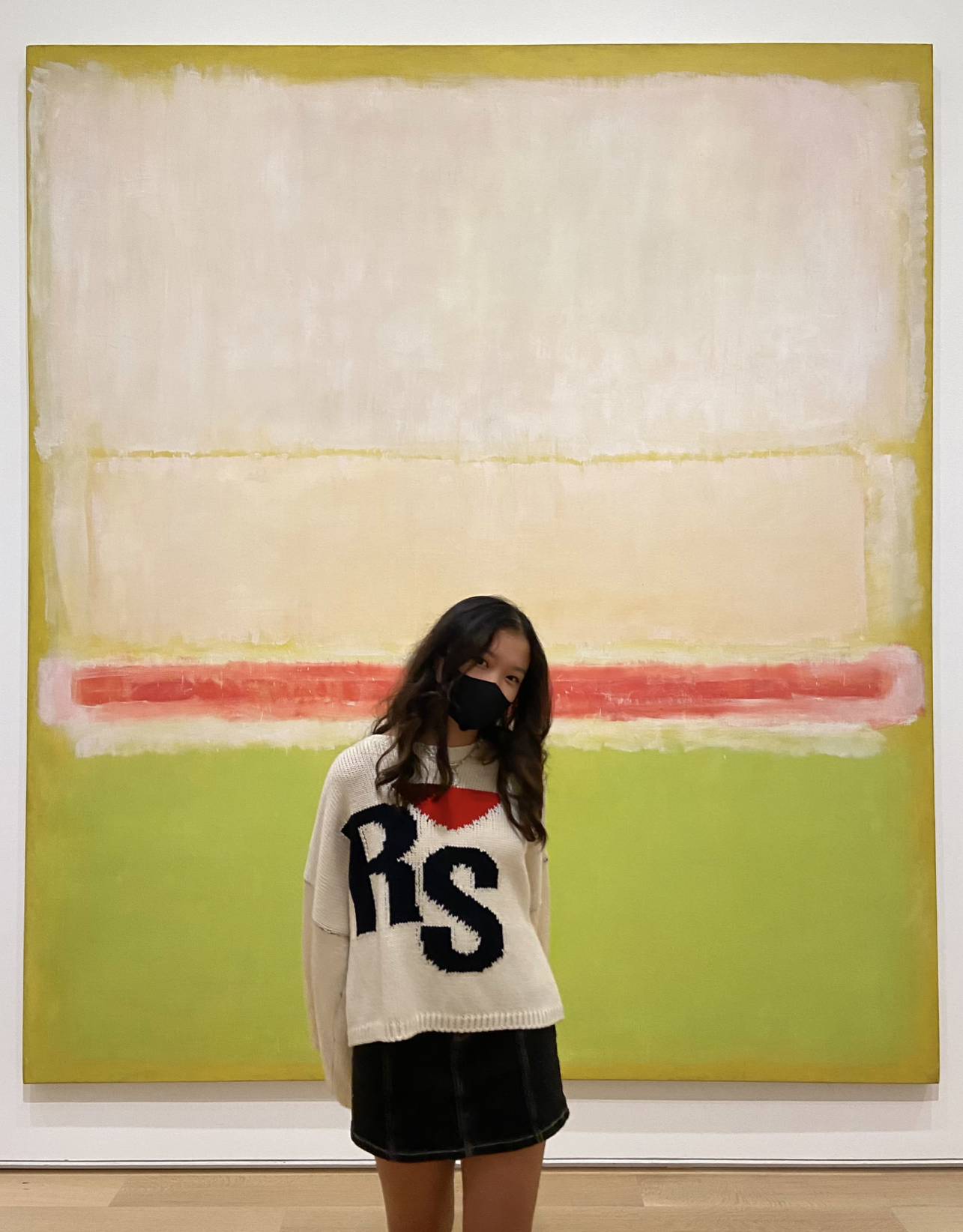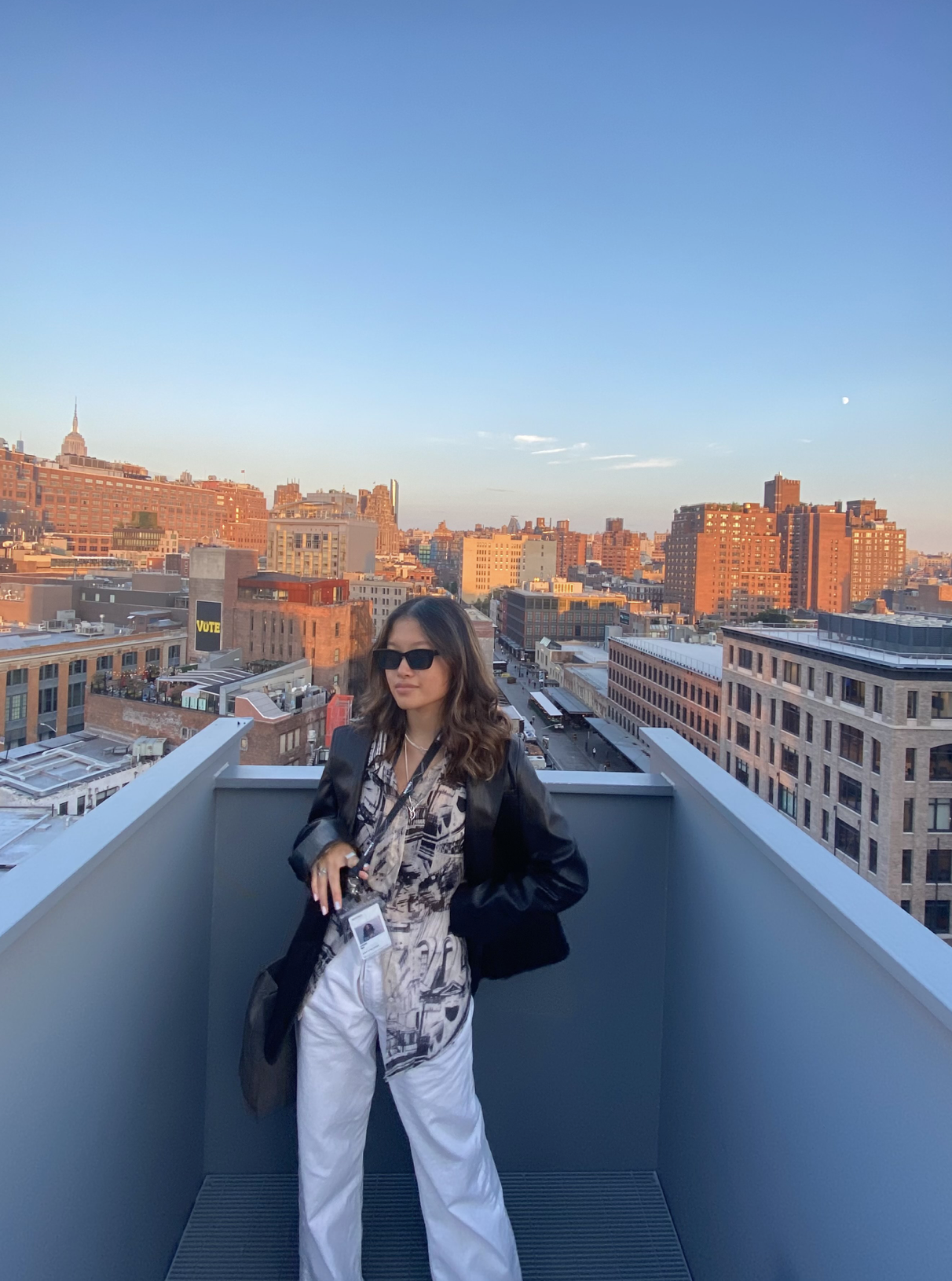
April 15, 2022
Annie Ma, a junior in the School of Arts & Sciences, reconciles her love for ancient Greek and Rome with contemporary East Asian culture and identity.
By Krisitina García | April 12, 2022 | Penn Today
The pandemic has been 700 days of living in isolation, working and learning remotely, adjusting to new and constantly evolving public health guidelines, all contributing to societal shifts. Penn Today spoke with students who have changed their focus during the pandemic, whether as a response to racism, a new sense of purpose, or personal reflection. This second installment is with Annie Ma, a junior from Platteville, Wisconsin.
At 14 years old, Annie Ma fell in love with the Iliad. Now a junior majoring in both art history and classical studies with a minor in consumer psychology, Ma is fascinated with both contemporary culture and the deep past.
“With classics, you’re trying to make sense of an entire civilization out of maybe, like, 50 plays and some pot fragments,” Ma says. “You have to basically use your analysis and deductive skills to say something about how people lived.” With contemporary culture, no one knows what’s going to be resonant 50 years from now, she says. Picking out the relevant pieces is “a good challenge,” she says.
For Ma, it’s important that the stories told about East Asian people are the ones East Asian people are telling.
It took her a while to come to this realization. Born to a physicist mother and computer scientist father, Ma spent her formative years in Platteville, Wisconsin, population 10,000. There were only five Chinese families and only two Chinese girls in Ma’s grade at school: herself and an adoptee. “It was like that,” she says.
Ma struggled with bullying so common, it was almost casual. “I had the eyes pulled on me when I was in the cafeteria,” she says, “or people would comment on my lunch.”
For Ma, fitting in wasn’t just about wearing the right cut of denim. Fitting in meant acting white, a doomed venture that only made her feel more alone, more othered. “The default of my existence was whiteness,” she says. “I had to make sure I was consuming white culture so that I could be able to communicate with my peers, or I have to make sure I don’t say anything that would weird a white person out, about the food I eat or the way my grandparents are.”
“I had to make myself palatable to a white community,” an adjective used to describe both acceptable behavior or a pleasant food or drink, something that goes down easy.
But Ma’s college career coincided with the rise of anti-Asian violence. By March 2020, her freshman year, the pandemic was official. COVID-19 was on the rise; so was racism. Terms like “kung flu” and “the Chinese virus” were rampant. The FBI warned of anti-Asian violence. Penn started a “Flatten the Hate” campaign, its slogan based on 2020’s ubiquitous exhortation to “flatten the curve.” By the end of the year, anti-Asian hate crimes were up 73%, with women and the elderly as particular targets.
A year later, in March 2021, eight women were shot and killed at three spas in the Atlanta, Georgia, area. Six of those women were Asian. Every time she opened her phone, Ma was reminded of this event in news briefs, on her social accounts. She was revulsed. She hated the way women were targeted in a “sexually motivated hate crime” and how the media focused on the shooter instead of the women, Ma says.
But in some spaces, the event didn’t register. There was silence—jokes, even. “I am upset that people get to have the luxury of not even being bothered by news like this when it comes out,” she says. “You are so lucky that you can get on with your day.”
Ma, like many of her peers, was asked to produce statements, provide enlightening resources. “That’s not right,” she says. “They’re the ones especially being affected by this and they’re the ones hurting, and you’re asking them to basically put their hurt on display for you, to kind of soldier through that and somehow dissociate from it so that you can get educated.” Racially motivated violent events become lightning rods for demonstrations of wokeness, Ma says.
“There’s a lot of emotional labor and pain that goes through like having to advocate for yourself when things like this happen,” Ma says. “It’s a lot of weight.”
In response, Ma had what she refers to as an identity breakthrough. “I just basically realized that I did not have to exist in a white space,” she says. “I really started embracing East Asian culture—like music, TV, cinema—that I really had rejected all the way up until then because I was trying to distance myself.”
Last year, Ma says, she forced herself to ask why. She didn’t have her own opinions about East Asian contemporary culture; she had subsumed the assumptions of others. “Everyone else was telling me it’s weird,” she says. From K-pop to anime, Ma began to immerse herself in contemporary East Asian culture.



